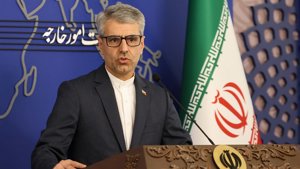
Kosovo to Host 50 U.S. Deportees
Kosovo agrees to host up to 50 U.S.-deported migrants, signaling alignment with Trump’s broader immigration strategy.
Kosovo Accepts Limited Number of Deportees Amid U.S. Push
The government of Kosovo confirmed Wednesday that it will temporarily host up to 50 migrants deported from the United States over a one-year period, responding to an ongoing U.S. effort to secure third-country agreements as part of President Donald Trump’s expanded immigration enforcement strategy.
“The government has expressed its readiness to participate, with the opportunity to select individuals from a proposed pool, provided they meet specific criteria related to the rule of law and public order,” Kosovo officials stated. The decision reflects growing cooperation between Washington and smaller allied nations willing to take in a limited number of deportees under controlled conditions.
Although the identities and national origins of the deportees have not been disclosed, the agreement comes just weeks after the U.S. Supreme Court lifted Temporary Protected Status for an estimated 500,000 individuals from countries such as Venezuela, Haiti, Cuba, and Nicaragua. Reports also indicated U.S. efforts to engage other Balkan nations, including Serbia, in similar negotiations.
Strategic Agreements and Economic Incentives
Kosovo, one of Europe’s poorest countries, is reportedly open to deals that offer potential financial benefits. While there has been no official confirmation from the U.S. regarding compensation for this arrangement, the move mirrors past agreements aimed at bolstering Kosovo’s limited state revenues through international cooperation in migrant management.
In 2022, Denmark struck a deal to transfer 300 foreign prisoners to Kosovo’s Correctional Institution in Gjilan. That agreement is expected to yield Kosovo $217 million. Similarly, last month, the United Kingdom announced plans to explore return hubs in Kosovo and other Balkan countries to house asylum seekers whose claims had been rejected, as part of its broader crackdown on unauthorized migration.
The U.S. State Department praised Kosovo’s participation in the new arrangement, stating, “We are grateful to our partner Kosovo for receiving third country nationals removed from the United States and facilitating those aliens’ safe return to their home countries.” The spokesperson added, “We welcome cooperation on this key Trump Administration priority,” but did not comment on whether financial compensation would be provided.
Kosovo’s willingness to participate in deportee hosting has previously stirred domestic debate. Local opposition groups and rights advocates have voiced concerns over transparency, human rights obligations, and the potential strain on the country’s limited infrastructure. Despite this, the government continues to pursue migration-related agreements as potential sources of income and international leverage.
As President Trump advances his pledge to significantly expand deportation operations, such international partnerships are expected to play a growing role. The Kosovo deal offers a potential template for future third-party hosting arrangements that combine enforcement goals with geopolitical and financial incentives.






